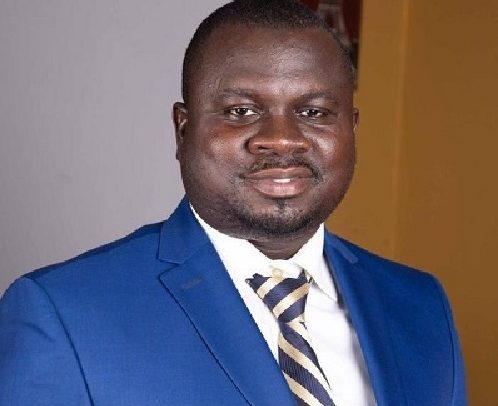The Ghana Journalists Association (GJA) has expressed concerns about some sections of the Cybersecurity (Amendment) Bill, 2025, warning that the proposed law could give authorities excessive powers to secretly monitor journalists and seize their communication devices.
The Association said the draft bill contained vague definitions of offences, overly broad investigative powers for the Cyber Security Authority (CSA), and prosecutorial tools that could easily be misused against journalists and media houses.
At a news conference in Accra on November 3, 2025, the President of the GJA, Albert Dwumfour, cautioned that the bill, in its current form, threatens press freedom and could be used to intimidate journalists.
“The draft contains vaguely worded offences, expanded state powers and broad enforcement tools that, without robust safeguards for us, risk being used to undermine journalism, criminalise legitimate online reporting, enable surveillance of journalists and sources and undermine press freedom,” he said.
The press briefing formed part of activities marking the International Day to End Impunity for Crimes Against Journalists. It also served as a platform to address other important national matters, including updates on the Ahmed Suale murder case, the proposed Misinformation, Disinformation, Hate Speech and Publication of Offensive Materials (MDHI) Bill, 2025, and preparations for the 29th GJA Media Awards.
According to Mr Dwumfour, while the bill aims to strengthen Ghana’s fight against cybercrime, its vague offences and broad powers “have the potential to criminalise legitimate online reporting and expose journalists and their sources to surveillance.”
He explained that after a detailed review, “the association is convinced that the current form of the bill poses a real threat to journalism, freedom of expression and media independence and must therefore be subjected to broader consultation and judicial safeguards.”
Mr Dwumfour cautioned that the bill’s unclear and wide-ranging definitions of cyber offences could discourage journalists from carrying out their duties freely.
“Experience from other countries shows that such ambiguous provisions are often weaponised to silence critical reporting and suppress dissenting voices,” he said.
He further warned that the bill’s expanded investigatory powers could allow state authorities to access journalists’ private communications and confidential sources without court approval. This, he said, would endanger media independence and the safety of whistleblowers.
The GJA president also criticised the proposal to grant prosecutorial powers to the Cyber Security Authority. He said giving a technical body such powers could lead to excessive centralisation and political influence in cyber-related cases.
He cautioned that without proper checks and institutional oversight, such powers could be abused to target media organisations critical of government.
“When enforcement powers are concentrated in one agency, the risk of abuse and intimidation of journalists becomes real, as seen in other jurisdictions,” Mr Dwumfour stated.
He also pointed out that the bill’s takedown and liability clauses could promote private censorship, as online platforms might remove legitimate content to avoid facing legal consequences.
Mr Dwumfour expressed concern that criminalising certain types of online speech under the bill could endanger public-interest journalism.
“Without clear legal protections, journalists could be arrested or prosecuted simply for doing their work, as has happened in countries such as Nigeria and Uganda,” he said.
He emphasised that press freedom is essential to democracy and urged lawmakers to ensure that any cyber law protects, rather than restricts, freedom of expression.
The GJA, therefore, called on the Ministry of Communications and the Cyber Security Authority to revise the draft bill and include clear safeguards for journalists. It urged the government to ensure mandatory judicial oversight, guarantee constitutional rights, and engage the public widely before passing the amendment into law.
“The GJA and, for that matter, the media, will always seek to protect the constitutionally guaranteed rights that are not taken away from us. We look forward to critical engagement on this bill,” he said.

